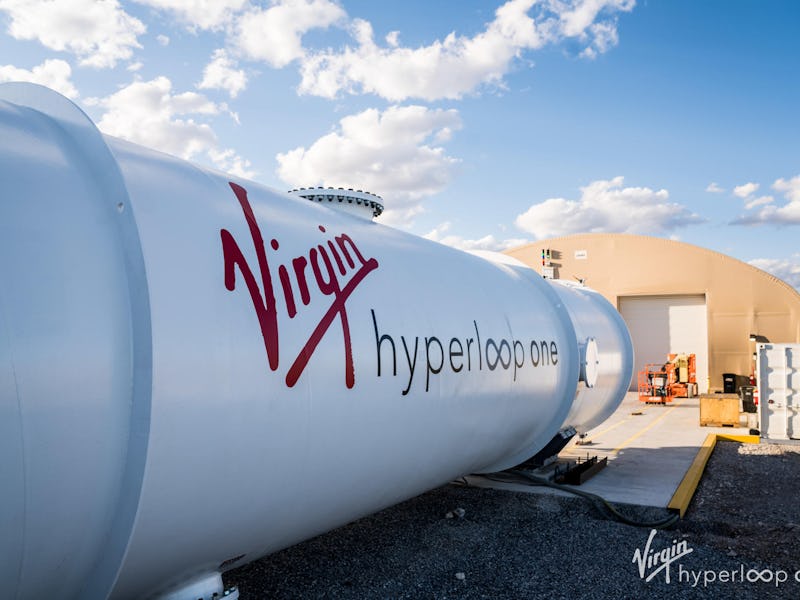
Virgin Hyperloop One announced on Tuesday plans to open a $500 million development and testing center in Spain, the company’s first hyperloop development facility in Europe. The facility will play a key role in developing the 700 mph vacuum-sealed pod transporter, first outlined in a publicly-available paper by SpaceX CEO Elon Musk in 2013, into a commercially viable transit system.
The Richard Branson-backed firm plans to build a 200,000 square foot center in Bobadilla, a village in the Andalusian province of Málaga. It’s the latest move from a company that’s made a big impression ever since its foundation in June 2014. It’s built a 1,640-feet “DevLoop” test tube in the Nevada desert. In December last year, its XP-1 pod hit a new public speed record of 240 mph, a record only beaten last month at 290 mph by WARR Hyperloop during SpaceX’s third student-led competition. In February, it signed an agreement with the Indian state of Maharashtra to agree on a 75-mile route from Mumbai to Pune.
See more: Virgin Hyperloop One Announces the Next Region for Feasibility Study
The Andalusia center is the next step. It will develop, test and certify aspects of the hyperloop to improve safety and reliability, hiring between 200 and 300 high-skilled tech professionals for its planned opening in 2020. The company has signed an agreement with the state-owned Administrator of Railway Infrastructures to build the facility, receiving €126 million ($146.3 million) in loans and grants to fund its construction. The location is ideal for Virgin Hyperloop One, as over 9,000 companies in transport and logistics make Andalusia the second-largest cluster of aerospace firms in Spain.
“For hyperloop to be commercially viable it needs to be safe and reliable - safety is our number-one priority,” Josh Giegel, co-founder and chief technology officer for Virgin Hyperloop One, said in a statement. “We’ve already been testing and improving our technology for the last four years, including building the only full-scale hyperloop system in the world. Ultimately, the center will help us deliver upon our first projects and scale to meet future demand around the world.”
The center will help Virgin Hyperloop One build its first public tracks, but it’s unclear where the first hyperloop will go live. For the Maharashtra project, the company estimates that a demonstration track could be constructed in two to three years, with the full route completed five to seven years later.
On the technology side, developers are confident in their progress. Delft Hyperloop, which competed in the third SpaceX competition, previously told Inverse that hyperloop could be technically feasible in around 10 years time.